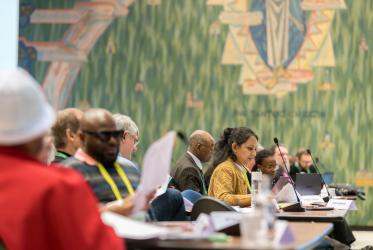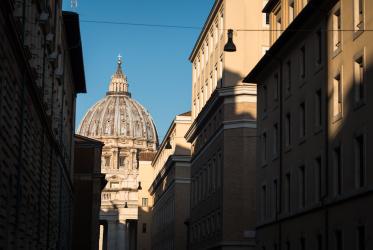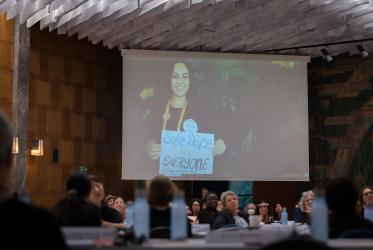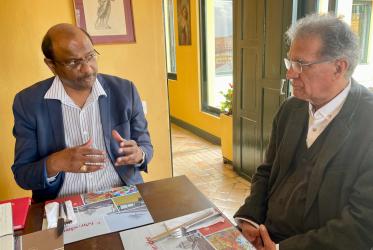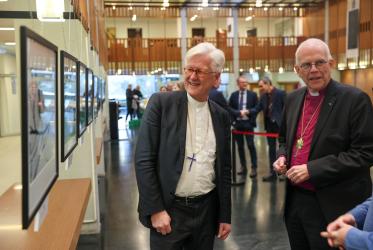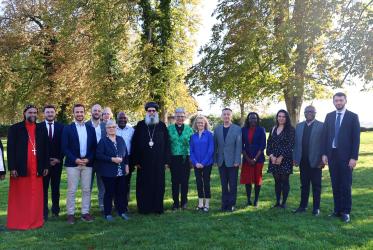Displaying 1 - 20 of 870
26 April 2024
Award-winning work means interactive storytelling with inclusivity
06 February 2024
Candlelight ceremony brings spiritual touch to Global Refugee Forum
14 December 2023
WCC general secretary commemorates legacy of Nelson Mandela
08 December 2023
Young Black Europeans: “common witness has an open ear”
30 November 2023
“Every Picture Tells A Story” photo exhibit opens
30 November 2023
“Every Picture Tells A Story” photo exhibit will open soon
23 November 2023
Protestant Church in Switzerland finds inspiration in visit to WCC
23 November 2023
Thirty days that changed the ecumenical movement
23 October 2023


